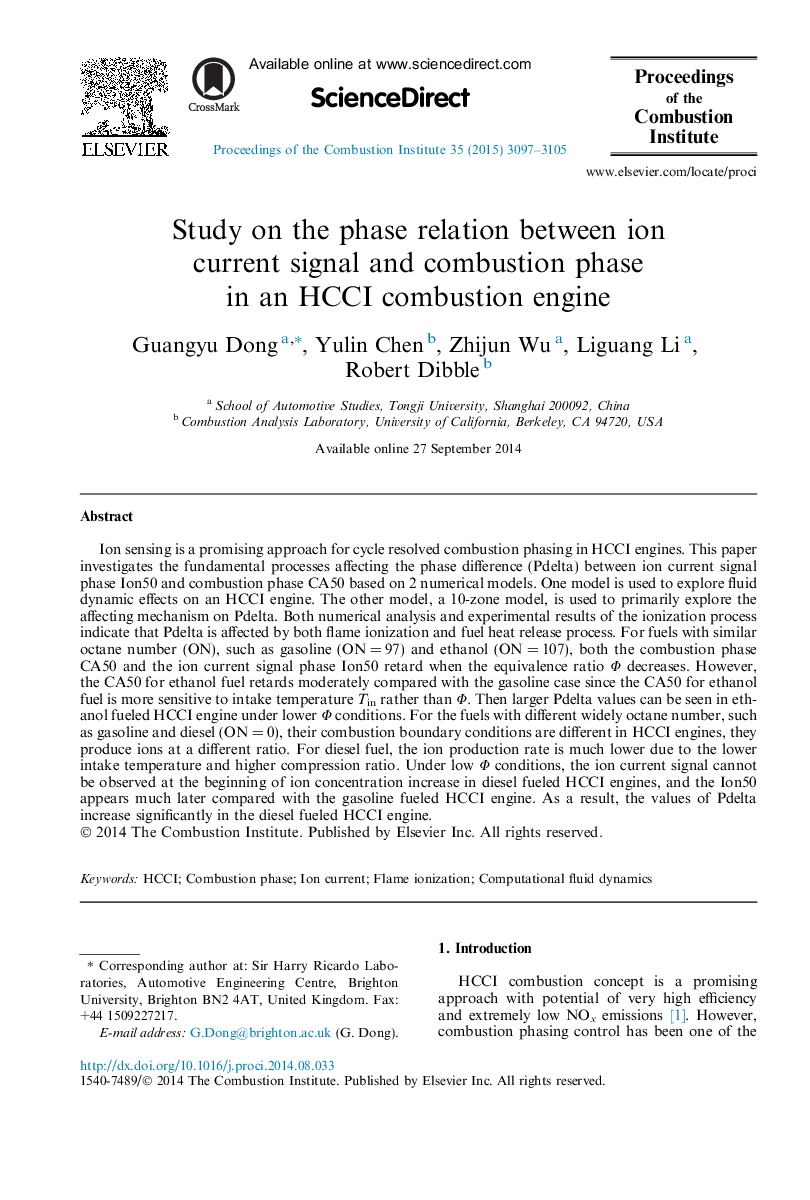| Article ID | Journal | Published Year | Pages | File Type |
|---|---|---|---|---|
| 4915564 | Proceedings of the Combustion Institute | 2015 | 9 Pages |
Abstract
Ion sensing is a promising approach for cycle resolved combustion phasing in HCCI engines. This paper investigates the fundamental processes affecting the phase difference (Pdelta) between ion current signal phase Ion50 and combustion phase CA50 based on 2 numerical models. One model is used to explore fluid dynamic effects on an HCCI engine. The other model, a 10-zone model, is used to primarily explore the affecting mechanism on Pdelta. Both numerical analysis and experimental results of the ionization process indicate that Pdelta is affected by both flame ionization and fuel heat release process. For fuels with similar octane number (ON), such as gasoline (ON = 97) and ethanol (ON = 107), both the combustion phase CA50 and the ion current signal phase Ion50 retard when the equivalence ratio Φ decreases. However, the CA50 for ethanol fuel retards moderately compared with the gasoline case since the CA50 for ethanol fuel is more sensitive to intake temperature Tin rather than Φ. Then larger Pdelta values can be seen in ethanol fueled HCCI engine under lower Φ conditions. For the fuels with different widely octane number, such as gasoline and diesel (ON = 0), their combustion boundary conditions are different in HCCI engines, they produce ions at a different ratio. For diesel fuel, the ion production rate is much lower due to the lower intake temperature and higher compression ratio. Under low Φ conditions, the ion current signal cannot be observed at the beginning of ion concentration increase in diesel fueled HCCI engines, and the Ion50 appears much later compared with the gasoline fueled HCCI engine. As a result, the values of Pdelta increase significantly in the diesel fueled HCCI engine.
Related Topics
Physical Sciences and Engineering
Chemical Engineering
Chemical Engineering (General)
Authors
Guangyu Dong, Yulin Chen, Zhijun Wu, Liguang Li, Robert Dibble,
